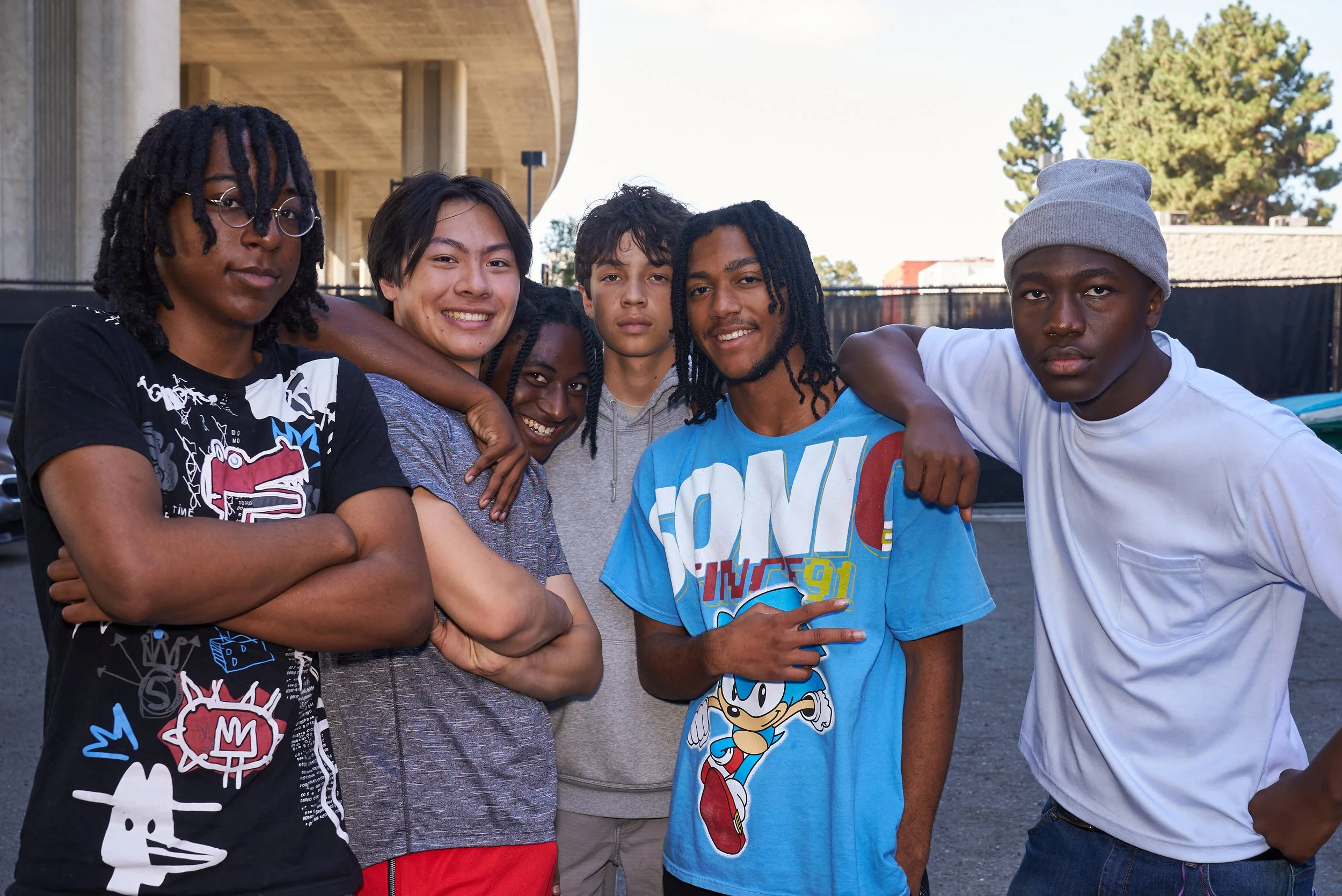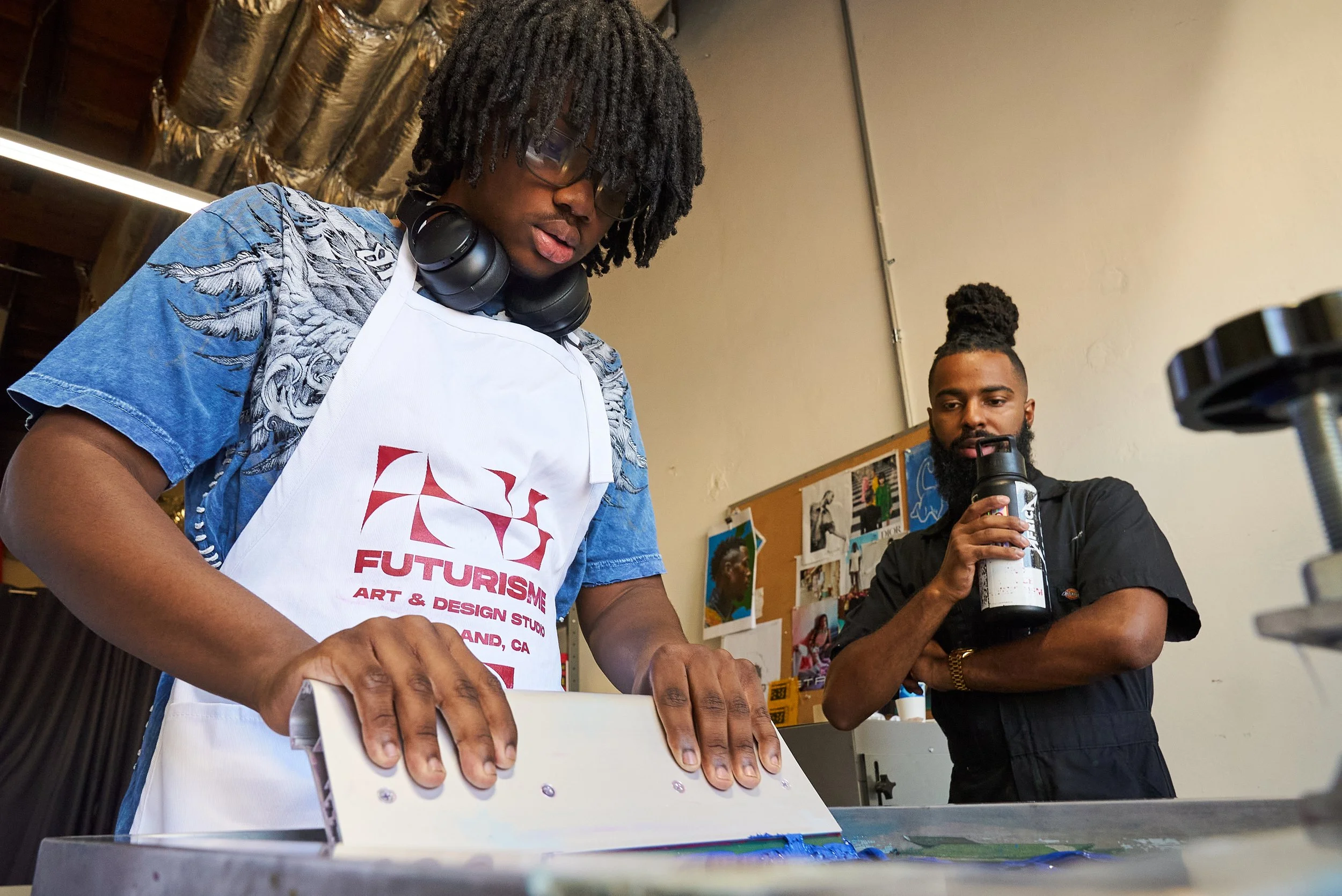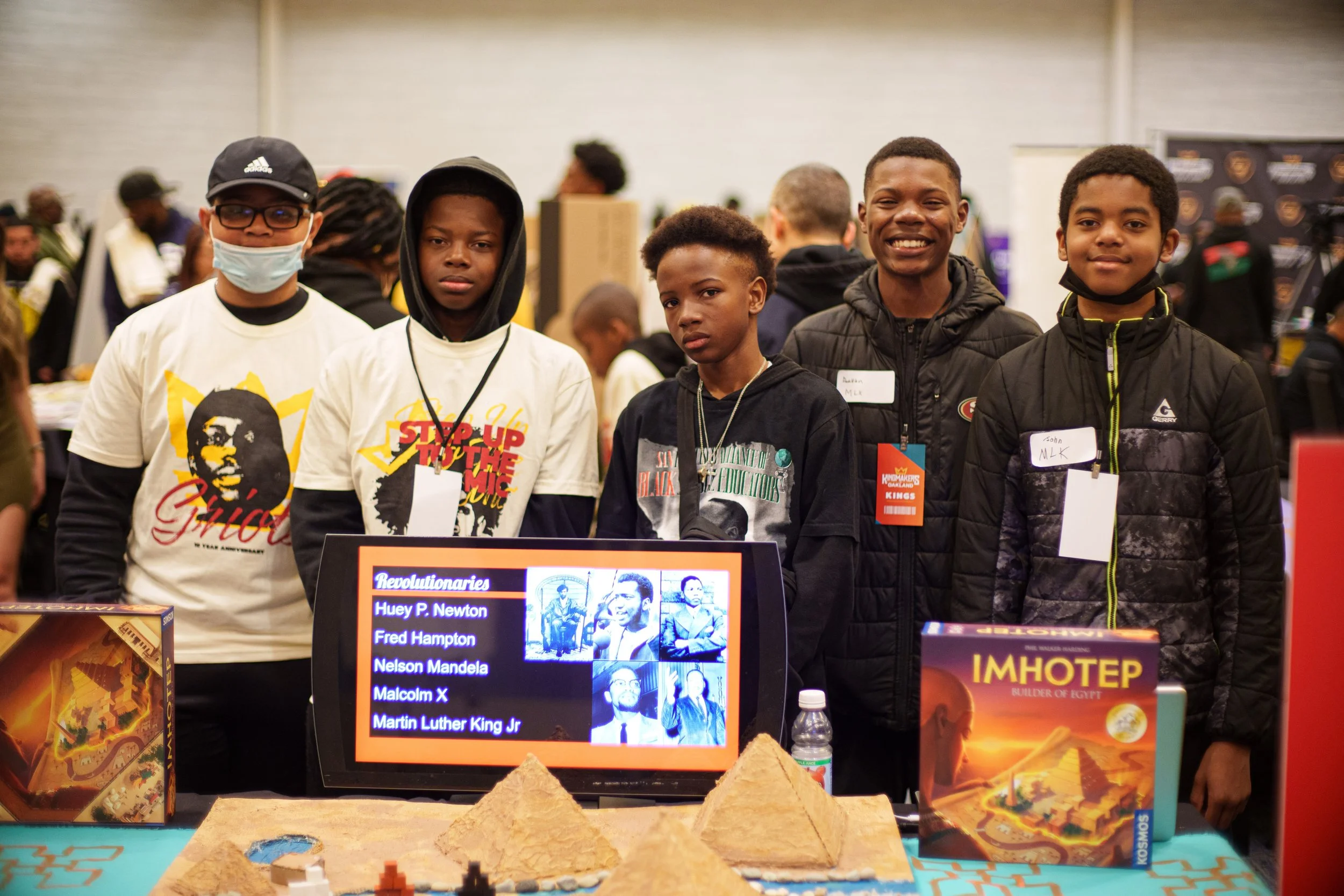
Kingmakers of Oakland works to improve the educational and life outcomes of Black boys and young men from Pre-K through Ph.D.
We activate strategies across 5 Core programs to create a thriving ecosystem for Black boys.
Our IMpact
500+
Educators trained in culturally responsive teaching practices proven to accelerate academic and SEL growth for Black boys—and benefit all students.
5000+
Students engaged in culturally grounded, identity-affirming learning through the Crowns Curriculum, implemented across 6 cities and 8 school systems.
150+
Students gained workforce-ready creative skills through hands-on training in music, media, fashion, and animation — producing industry-informed work like short films, original beats, and custom apparel.

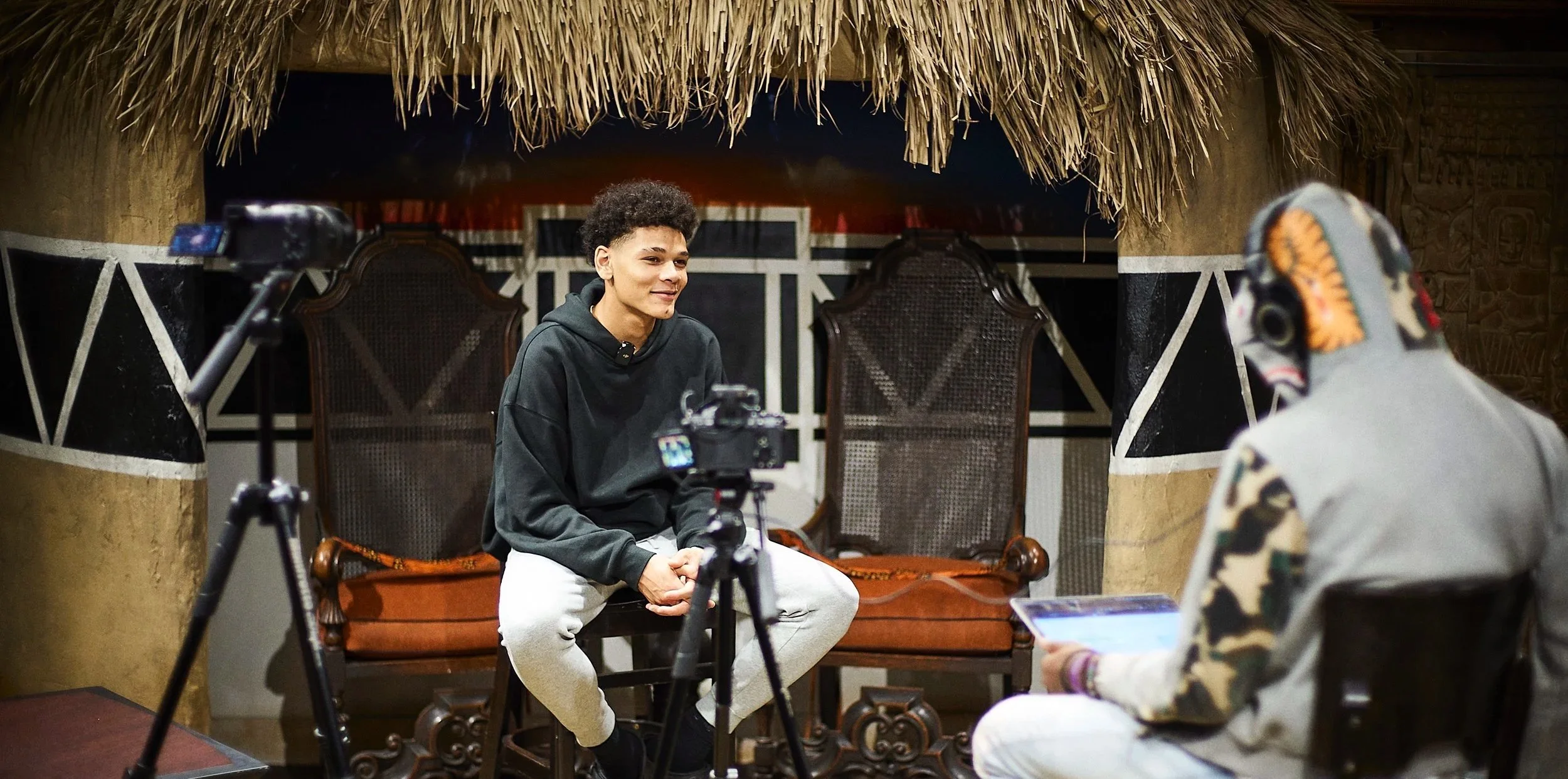
We’re building a digital archive of Kingmaker stories… from youth, caregivers, educators, and the full KOO village.
Our Kings, Our Stories
Season 1 out now on YouTube
Our Curriculum
Crowns Curriculum
Culturally responsive curriculum that empowers teachers & students
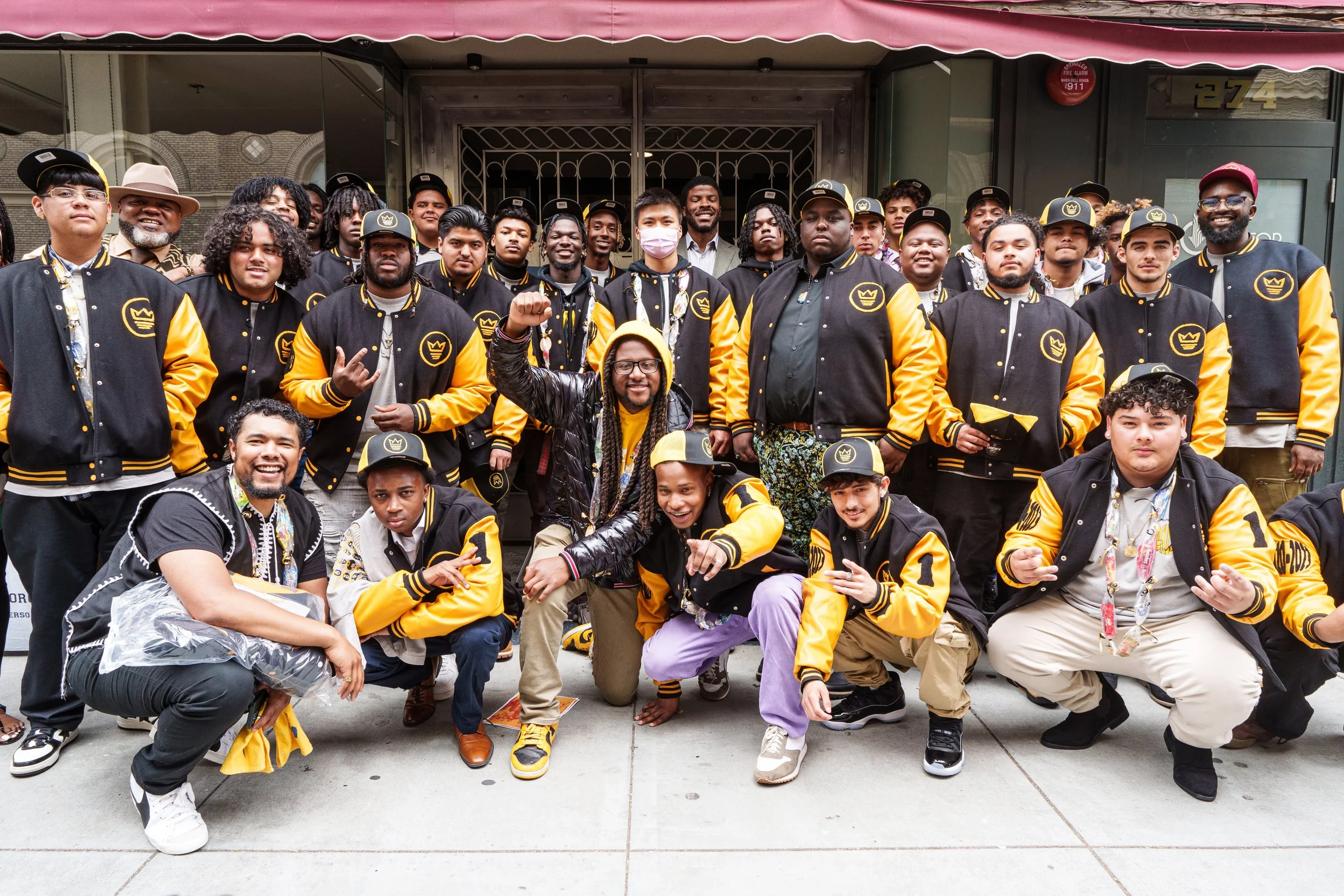
“We’ve Learned that leadership is not about holding power over others, but about serving the needs of our community”
- Samuel Rodriguez, TFI Oakland Cohort 1
Our Programs
Our Media
Upcoming events
Check out our event calendar to see all of the events we have planned for the year.






